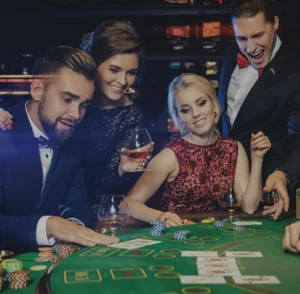Should Dutch Players Play at Online Casinos? A Philosophical Perspective on Gambling in the Netherlands
In recent years, the popularity of online casinos in the Netherlands has surged dramatically, fueled by technological advancements, increased internet accessibility, and a shifting cultural attitude towards gambling. As the Dutch government progressively regulates the online gambling industry through the Kansspelautoriteit (KSA), many players face a fundamental question: Is it morally and ethically right to participate in online gambling?
This question isn’t merely about whether you can or should, but also probes deeper into the societal, personal, and philosophical implications of online casinos for Dutch society. Let’s explore this complex issue from a philosophical perspective, weighing the benefits and risks, and ultimately helping you decide whether you should gamble at online casinos in the Netherlands.
1. The Concept of Choice and Free Will in Online Gambling
At the core of the debate about online casinos in the Netherlands is the concept of free will. Are players genuinely exercising free choice when they decide to gamble? Or are they simply succumbed to the allure of instant gratification, compounded by modern marketing and technological manipulation?
Philosophically, free will implies that individuals have the capacity to make autonomous choices based on rational thought. In the context of Dutch online casinos, the question becomes whether the gambling environment encourages responsible decision-making or whether it exploits psychological vulnerabilities.
Many argue that gambling is an expression of personal freedom—a way to enjoy entertainment and potentially improve one’s financial situation, if luck is on your side. Yet, critics contend that the highly sophisticated marketing tactics employed by online casinos, combined with the rapid and addictive nature of digital gambling, impair true free will. They may diminish the player’s ability to make rational decisions, especially when faced with enticing bonuses, free spins, and easy deposit methods supported by iDEAL — a favored payment method for Dutch players.
Conclusion: While gambling can be viewed as an exercise of free will, in reality, the psychological and marketing pressures surrounding online casinos in the Netherlands often challenge that autonomy.
2. The Ethical Dilemma: Risk Versus Reward
Another profound philosophical issue is the ethical dilemma surrounding gambling: Is it morally acceptable to participate when the odds are inherently against the player? In most online casinos in the Netherlands, house edges mean that over time, the casino always wins. The question is whether players are engaging in a fair activity or whether they are knowingly risking their money in a rigged game.
Utilitarianism, a philosophy that advocates for actions that maximize happiness and minimize suffering, can be applied here. From a utilitarian perspective, if gambling provides joy, entertainment, and social bonding for Dutch players without causing harm, it may be justified. Conversely, if gambling leads to addiction, financial ruin, and social problems—particularly in a society with a high prevalence of problem gambling—it may be ethically questionable.
Personal Responsibility in Dutch Gambling: The Dutch government and licensed online casinos promote responsible gaming tools—deposit limits, self-exclusion, and problem gambling helplines—to minimize harm. Ethically, individuals should weigh the potential happiness against the possible suffering and decide accordingly.
Takeaway: The morality of gambling hinges on personal responsibility and societal safeguards. Engaging in online casinos in the Netherlands should be a conscious choice aligned with respecting one’s well-being and that of society.
3. Gambling and Society: Cultural and Economic Perspectives
On a broader societal level, the impact of online casinos in the Netherlands raises questions about cultural values and economic benefits. Some argue that gambling can generate tax revenue, create employment, and boost local economies.
However, others point out the social costs—gambling addiction, increased crime, and family breakdowns—that often accompany an unregulated or poorly regulated gambling industry.
Philosophers of social justice emphasize that societal acceptance of gambling should be rooted in fairness, safety, and the reduction of harm. In the Netherlands, the tightening regulations and licensing by the Kansspelautoriteit aim to strike this balance, ensuring that online casino operators are held accountable and that players are protected.
The ethical question is whether society should encourage gambling as a form of entertainment or view it as an inherently risky activity that should be carefully controlled and limited.
4. Personal Growth and the Search for Meaning
Beyond societal and ethical concerns, the question for individual Dutch players is: What is the true purpose of gambling? Does gambling at online casinos contribute to personal growth, or does it hinder it?
Some philosophers argue that recreational gambling can be a form of happiness-seeking or a way to understand chance and uncertainty, thus fostering resilience and acceptance in life’s unpredict.




